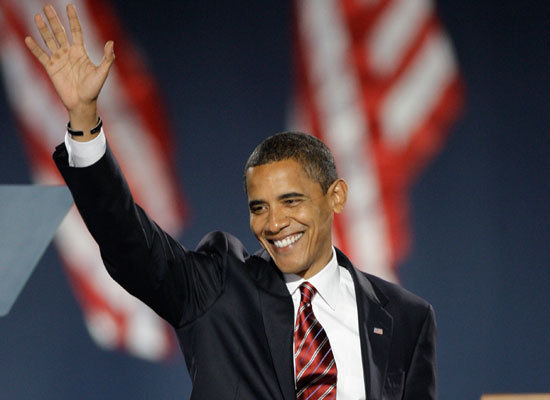With United States President Barack Obama fending-off an election year challenge from former Republican Governor and businessman, Mitt Romney, to secure a second term and four more years in office, now that the dust has settled, the world steadies itself, as it prepares to observe how Obama intends to steer the United States, the world’s largest economy, away from the lingering economic effects of the 2008 recession.
In the same light, as the United States moves past this uncommonly contentious election cycle that pundits all over the United States dubbed “The Economy Election”, the same question is being asked by governments and business people all around the world: “What does a second-term Obama presidency spell for the global financial markets?” In spite of the fact that Obama is only the President of the United States, given the size and dominance of the U.S. financial markets, and the financial assistance that it regularly provides to African nations, it is also important to examine the effects of a second Obama presidency in terms of what it means for Africa.
In a mid-2011 Voice of America news report, many African business leaders believed that the United States was not doing enough to encourage investment in Africa, and urged Obama to do more to attract potential investors on the continent. However, for all intents and purposes, Africa was overlooked throughout the campaign between Obama and Romney, with the exception of scathing criticisms by Romney on Obama’s handling of the September 11th, 2012 terrorist attacks in Libya (North Africa) that resulted in the death of a U.S. Ambassador.
The International Monetary Fund (IMF) projects that in the next five years, Africa will have the world’s fastest growing economy (on average). Another news report, by Howard French, from the Business Insider suggests that seven out of ten of the world’s fastest growing economies are African. Against this backdrop, on June 13, 2012, the White House released a memo entitled U.S. Strategy Toward Sub-Saharan Africa, in which President Obama highlights the successes of the African economy, as well as the four-pronged economic strategy that the United States will be (and is currently) embarking on in its economic relationship with the Africa. The mainstay of this strategy include: strengthening democratic institutions in Africa by promoting accountable and responsive governance and leaders that embody such values; spur and encourage economic growth, trade and investment by promoting the regional integration of African markets; advance peace and security by promoting regional security cooperation and security sector reform and; promote opportunity and development by addressing the constraints to growth and poverty reduction, as well as promoting food security and access to opportunities for women and youth.
Speaking at the World Economic Forum (WEC) in Washington, DC earlier this year, the Deputy National Security Advisor for International Economics in the Obama administration, Michael Froman, mentioned that the global discussion about the economic fate of Africa “has shifted from how much aid will be provided” to the continent, to how best to create and enable a conducive “environment for trade and the investment necessary to drive broad based economic growth” which he stressed is “the only true paths toward development.” In addition to this, Froman emphasized the Obama administration’s commitment to ensuring the economic success of Africa; given that the continent’s current economic growth projections are optimistic, yet still very fragile. Froman also maintained that the Obama White House had dispatched senior administration officials like himself, and Secretary of State, Hilary Clinton, to tour countries like Nigeria, South Africa, Tanzania, Ethiopia, Kenya, Malawi, South Sudan, and Senegal to accentuate the importance of democracy and security and how it relates to economic growth. Owing to the aforementioned policies, and the current economic trends, in Froman’s opinion, the “stars are aligned for sustained economic growth and substantial reductions in poverty” in Africa.
Since 2008 – when Barack Obama was first elected – many regions in Kenya – the birthplace of Barack Obama’s father – noticed a gradual uptick in foreign investments – especially in infrastructure and social programs. Nevertheless, attracting foreign investments in a broader range of African countries has been particularly problematic given the nature – or a lack thereof – of adequate infrastructure like roads, and basic utilities like electrical power. In this regard, in addition to the four-pronged approach set forth by the U.S Strategy for Sub-Saharan Africa, the United States is also trying develop a new “Doing Business in Africa Campaign” initiative to attract U.S-based investors, by pinpointing investment opportunities in the region and how to cultivate such opportunities.
With many, even Senators in Mr. Obama’s own Democratic Party, believing that the United States has not been as fast as China to pick up on the economic potential in Africa, earlier this year, a bipartisan bill was introduced in the United States Senate to “strengthen opportunities for U.S. investment throughout” Africa. As a result of these preexisting policies by the Obama administration, in addition to the economic forecast by multinational financial organizations, even though Africa was overlooked throughout the campaign, and for much of Obama’s first term as President, it is clear that going into his next four years, Obama has been given a second chance on leaving behind a lasting legacy on Africa’s oft-overlooked but rising economy.







